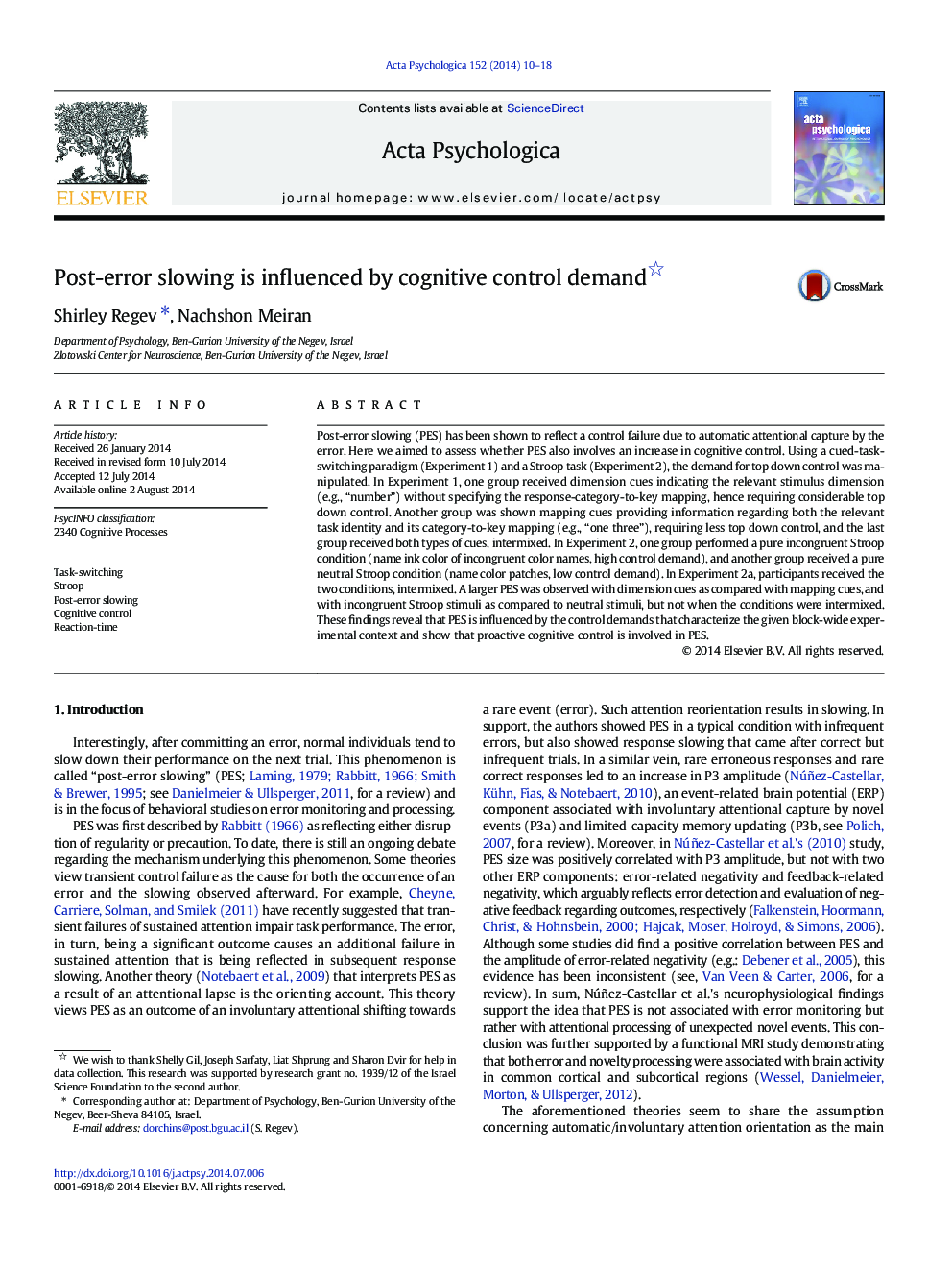| Article ID | Journal | Published Year | Pages | File Type |
|---|---|---|---|---|
| 919780 | Acta Psychologica | 2014 | 9 Pages |
•Increasing cognitive control demands increased post-error slowing.•This happens when control demands vary across experimental contexts and not on a trial-by-trial basis.•Post-error slowing involves both reactive and proactive cognitive control.
Post-error slowing (PES) has been shown to reflect a control failure due to automatic attentional capture by the error. Here we aimed to assess whether PES also involves an increase in cognitive control. Using a cued-task-switching paradigm (Experiment 1) and a Stroop task (Experiment 2), the demand for top down control was manipulated. In Experiment 1, one group received dimension cues indicating the relevant stimulus dimension (e.g., “number”) without specifying the response-category-to-key mapping, hence requiring considerable top down control. Another group was shown mapping cues providing information regarding both the relevant task identity and its category-to-key mapping (e.g., “one three”), requiring less top down control, and the last group received both types of cues, intermixed. In Experiment 2, one group performed a pure incongruent Stroop condition (name ink color of incongruent color names, high control demand), and another group received a pure neutral Stroop condition (name color patches, low control demand). In Experiment 2a, participants received the two conditions, intermixed. A larger PES was observed with dimension cues as compared with mapping cues, and with incongruent Stroop stimuli as compared to neutral stimuli, but not when the conditions were intermixed. These findings reveal that PES is influenced by the control demands that characterize the given block-wide experimental context and show that proactive cognitive control is involved in PES.
